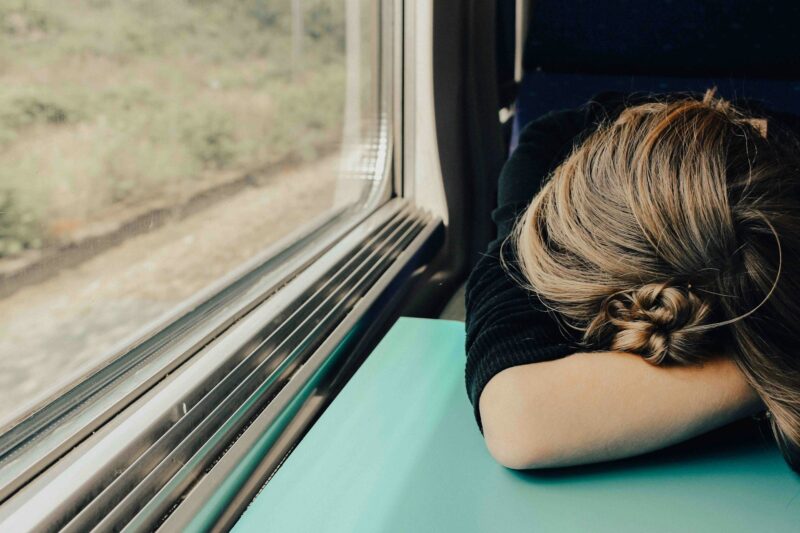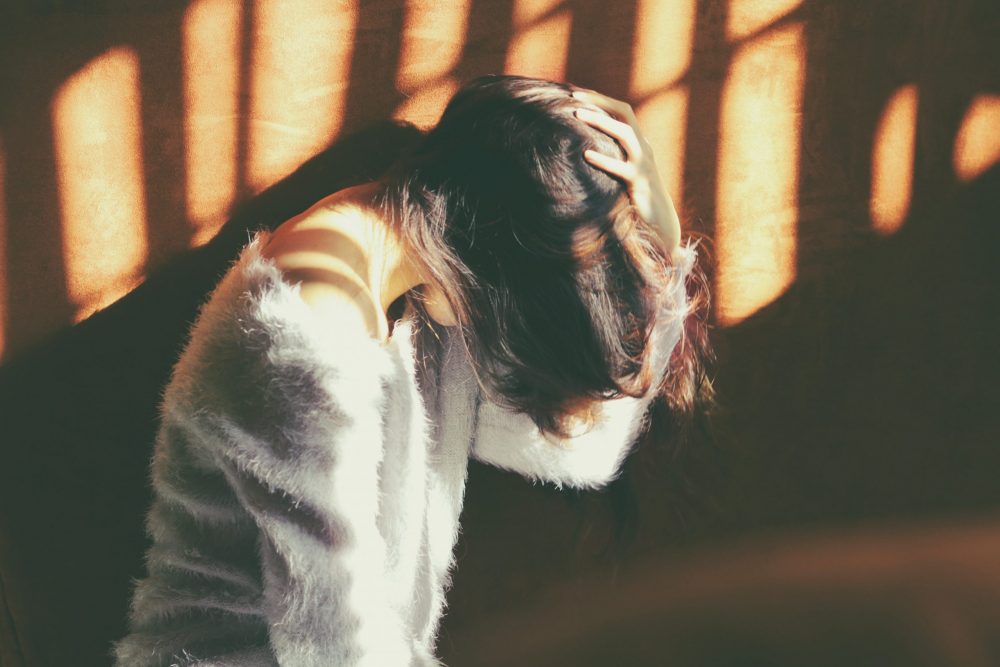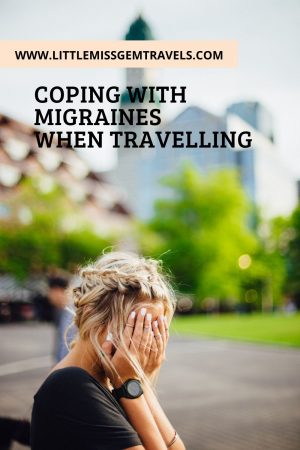The posts in this blog may include affiliate links. This means that when you decide to purchase anything through these links I get a small commission at NO extra cost to you.
It’s no secret that planning and taking a trip can be a little stressful at times. This can only be made worse by the addition of a migraine. However there are certain things you can do to help avoid and make coping with migraines when travelling a lot easier.
Coping With Migraines When Travelling
If you have never had a migraine before it can be extremely difficult to describe the pain and effect it can have on you. It is important to remember that even though everyone’s experiences are different it is never helpful to simply confuse a migraine with “a bad headache”.
What is a Migraine?
Migraine is a complex condition with a wide variety of symptoms, and whilst the main symptom is an extremely painful headache, there are additional symptoms that also need to be taken into consideration: disturbed vision, sensitivity to light, sound and smells, feeling nauseas and vomiting.
The most common types of migraine fall into two categories:
Migraine With Aura
Migraine Without Aura
The term aura describes a neurological disturbance that appears shortly before or during the development of a migraine. The aura usually lasts less than 1 hour, and almost invariably fades away without long-lasting effects. The most common aura involves the vision, with hallucination/illusion of bright flashing lights and on occasion partial blindness.
What Causes a Migraine
There are no known causes for migraines, although most people with it are genetically predisposed and tend to find that there are certain triggers which commonly occur. These can include stress, hunger, dehydration, excess alcohol, hormonal changes in women, lack of sleep and the environment.

How Migraines Effect Me
I have suffered with frequent headaches since I was a child, but I experienced my first migraine when I was a teenager. When I first started getting migraines they only came on first thing in the morning, I have huge throbbing either on one side of my head or at the back on my head and in my neck, bright lights would hurt my eyes and all noises seemed to be amplified. Within an hour of the migraine starting I would feel nauseous and dizzy and would ultimately result in vomiting. The only thing that helped was Ibruprofen, water and a day in bed.
However, around ten years ago this changed. Even though the banging in my head, the sensitivity to light and sound and the inevitable vomiting is unchanged, I no longer only get migraines in the morning. Now they can come on at any time of day, this means that I can’t always guarantee the comfort of my own bathroom and the ability to go straight back to bed.
My Triggers:
Changes in routine
If I change my routine to much, for example changing sleep patterns, then I can find a migraine is more likely. I find that I am more likely to suffer with a migraine at the weekend as I have different eating times and am more likely to want a lie-in after a busy week.
Sleep
As I mentioned, having a lie-in at the weekend can increase the chance of a migraine, both too much and too little sleep can be a factor, as well as sleepless nights. Another trigger can be to sleep during the day unnecessarily, for instance if I am not already feeling unwell then taking a nap can actually cause a migraine later on that day.
Computer Screens
Sitting in front of a computer at home or work for long periods of time can cause headaches and migraines if I fail to take enough breaks throughout the day.
Mild dehydration
I’ll be the first to admit that I don’t drink enough water and that that definitely doesn’t help with trying to avoid or lessen the likelihood of having a migraine.

Tips for Coping With Migraines When Travelling
Plan Ahead
Planning ahead for your trip and being prepared for the possibility of having a migraine when travelling is one of the best ways to reduce stress, anxiety and migraines themselves.
Be organised with the planning of your trip by packing in advance and ensuring that you having all of your documents printed and somewhere safe but easily accessible, so that you’re not rushing around in a panic directly before you leave.
Make sure you give yourself enough time to get to the airport, or train station, check in, collect tickets, and get through customs. The last thing you want to do is be rushing and stressed, so once you’re done with all the queuing you can sit down with a coffee or a bite to eat and relax before your flight, or train ride.
Take Medication
Whether it’s over the counter pain medication, or prescription, it’s really important that you remember to have pain relief on you at all times, especially when travelling. Don’t just pack the amount for your trip, take more than you are likely to need in case you misplace any.
Stay Hydrated
Dehydration can happen a lot faster while travelling due to the dry environment of a plane, the various activities you probably have planned, and the climate of your destination. To avoid this from happening, always, ensure you have a bottle of water to hand.
Remember to Relax
Remember, travelling should be relaxing as well as fun and enjoyable. Even if you have a ton of activities and excursions planned you are still supposed to feel rested and happy. If stress and over-excursion are triggers for your migraines then you should always consider giving yourself some time off during your trip. Whether it’s a morning where you take it slow and just enjoy a long breakfast and some exercise, an early relaxing night to catch up on any lost sleep or you just have a day with no plans but plenty of good food and fresh air.
Do you suffer with migraines?
What are your tips for coping with migraines when travelling the world?
Let me know in the comments.



It was a great article, thanks for sharing!
https://oneearthhotels.com/jammuh.aspx